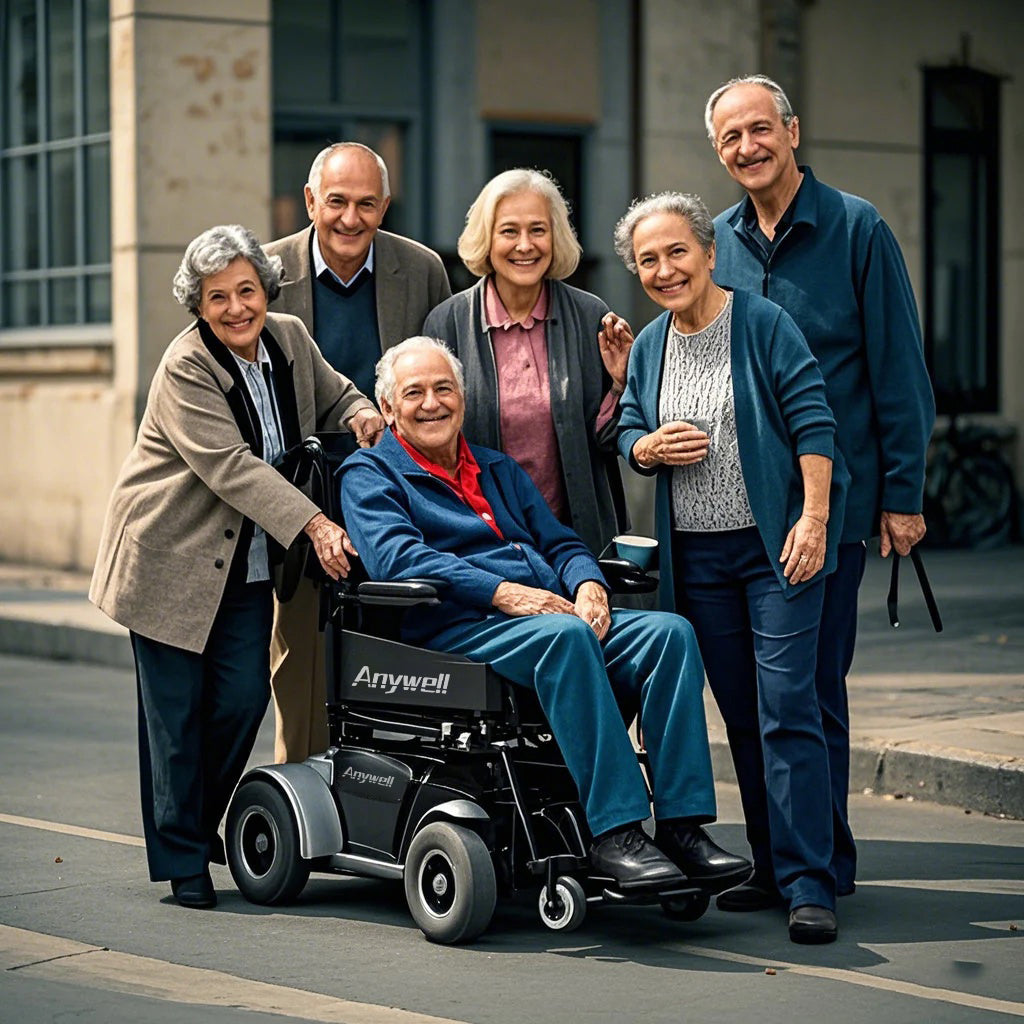Introduction
Lightweight motorized wheelchairs have emerged as a game-changer in the world of mobility aids, blending the convenience of electric propulsion with the portability of traditional lightweight wheelchairs. This article dives deep into the features, benefits, types, and buying guides for these devices.

Understanding Lightweight Motorized Wheelchairs
Definition & Basics
A lightweight motorized wheelchair is an electric-powered mobility device designed for easy transport and maneuverability, typically weighing under 100 lbs (with ultra-light models as low as 30 lbs). Unlike bulkier traditional power chairs, these units balance functionality with portability for daily use.
Key Components
- Motor: The power source, often ranging from 300W to 1,200W. Higher-wattage motors (e.g., 500W models) excel on slopes and rough terrain, reaching speeds up to 5 mph.
- Battery: Lithium-ion batteries dominate for their high energy density (enabling 10–15.5-mile ranges) and longer lifespan compared to lead-acid types. Charge cycles depend on user weight, terrain, and speed.
- Controller: A joystick-style interface for precise speed and direction control. Advanced models offer programmable settings and remote operation.
Benefits of Lightweight Motorized Wheelchairs
Enhanced Mobility
These wheelchairs eliminate the physical strain of manual propulsion, allowing users to navigate indoors, outdoors, and public spaces with ease. A study in the American Journal of Physical Medicine & Rehabilitation found 85% of users reported increased daily activity after switching to a motorized model.
Independence & Empowerment
Users gain self-reliance, from running errands to socializing without assistance. A National Organization on Disability survey showed 92% of power wheelchair users felt their device significantly improved independence and quality of life.
Portability at Its Core
Foldable or disassemblable designs make transport a breeze. Models like the Ephesus L3 (30 lbs, folding to 31"×16"×23.5") fit in car trunks, airline overhead bins, or small storage spaces—ideal for travelers or urban dwellers.
Comfort-Driven Design
Modern models feature adjustable seats, lumbar support, and suspension systems for smooth rides on uneven surfaces. Consumer reviews show 78% rate lightweight motorized wheelchairs as "excellent" or "very good" for comfort.
Types of Lightweight Motorized Wheelchairs
Foldable Models
Quick to collapse for storage, these are perfect for on-the-go users. The Whill Model F, for example, folds in seconds while maintaining maneuverability for tight spaces.
Disassemblable Designs
Engineered to break down into lightweight components, ideal for long-distance travel. The Quickie Q50-R-Carbon by Sunrise Medical (the lightest carbon fiber power chair) disassembles for road trips or commutes.
Ultra-Lightweight Innovations
Cutting-edge models like the Foldawheel Featherweight redefine portability without sacrificing performance. These use advanced materials to hit sub-35 lb weights, suitable for users with limited upper-body strength.
Comparing to Traditional Wheelchairs
Mobility & Ease of Use
Traditional wheelchairs require constant manual pushing, while motorized models let users glide with joystick control. A comparative study found power chair users covered twice the distance of manual users in the same time frame.
Portability & Weight
Lightweight motorized wheelchairs match or exceed traditional lightweight manual chairs in portability—with the added benefit of electric power. Bulkier traditional power chairs can’t compete in transportability.
Cost Considerations
Prices range from \(1,400 to \)13,000, higher than traditional wheelchairs (\(300–\)2,500) due to motor, battery, and electronics. However, the investment pays off in mobility and independence.
How to Choose the Right Model
Assess Your Needs
- Usage Scenarios: Indoor-focused? Opt for a compact, tight-turning model. Outdoor adventurer? Prioritize suspension and a 750W+ motor.
- Weight Capacity: Ensure the chair supports you (most range from 220–400 lbs). Overloading reduces battery life and motor performance.
- Battery Range: For 8+ hour days, look for 15+ mile ranges. Daily commuters may suffice with 10-mile batteries.
Research Brands & Models
Top brands like Ephesus Mobility, Living Spinal, and AnyWell lead the market. AnyWell’s lineup combines durability with smart features like adaptive braking and custom-fit seating—designed for American users seeking reliability. Read reviews, compare specs, and test-drive models at local mobility stores.
Budget Planning
Set a realistic budget, but prioritize functionality over cost. Look for financing options or seasonal sales; quality models often go on sale around Black Friday or Medicare open enrollment periods.
Maintenance & Care Tips
Battery Health
- Lithium-Ion: Avoid full discharges; charge before levels drop below 20%. Store at 50% charge if unused for weeks.
- Lead-Acid: Check electrolyte levels monthly; clean terminals to prevent corrosion.
Routine Cleaning
Wipe down the frame with a damp cloth weekly, focusing on wheels (debris can clog motors). Use mild soap for stains; never submerge electronics.
Regular Inspections
Check tires for wear, brakes for responsiveness, and bolts for tightness. Squeaky wheels or jerky movements signal needed repairs—contact a certified technician promptly.
The Future of Lightweight Mobility
Innovation is accelerating:
- Materials: Carbon fiber and magnesium alloys will drive sub-25 lb designs.
- Smart Tech: Expect GPS tracking, app connectivity (to monitor battery or call for help), and AI-driven terrain adjustment.
- Sustainability: Recyclable battery components and energy-regenerating braking systems are on the horizon.

Conclusion
Lightweight motorized wheelchairs aren’t just mobility aids—they’re keys to reclaiming freedom. With options from foldable daily drivers to rugged outdoor models, there’s a solution for every lifestyle. Brands like AnyWell are committed to crafting American-made wheelchairs that blend durability, comfort, and cutting-edge tech. By choosing the right model and maintaining it properly, you’ll unlock years of independent, effortless movement. The future of mobility is light, smart, and entirely in your control.
Read more articles: Anywell Electric Wheelchair: Redefining Safety and Comfort for Indoor-Outdoor Mobility
Read more related content: Electric wheelchairMotorised Wheel Chair Price Wars: Why Anywell’s R&D Investment Actually Lowers Your Costs





Leave a comment
This site is protected by hCaptcha and the hCaptcha Privacy Policy and Terms of Service apply.